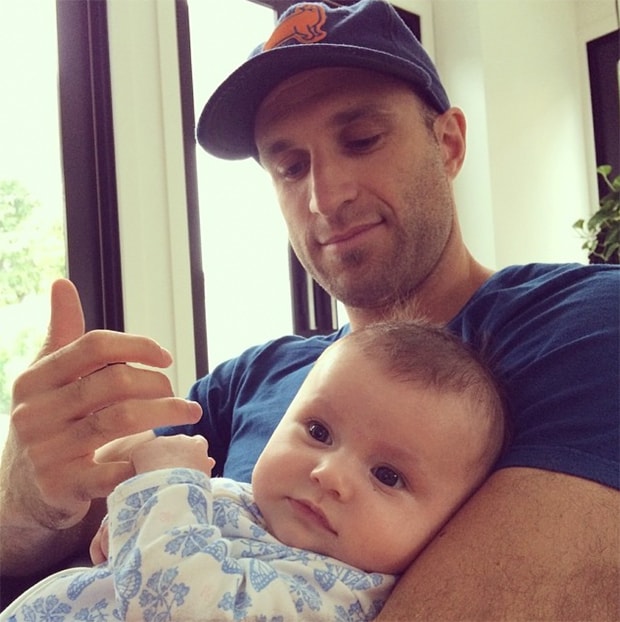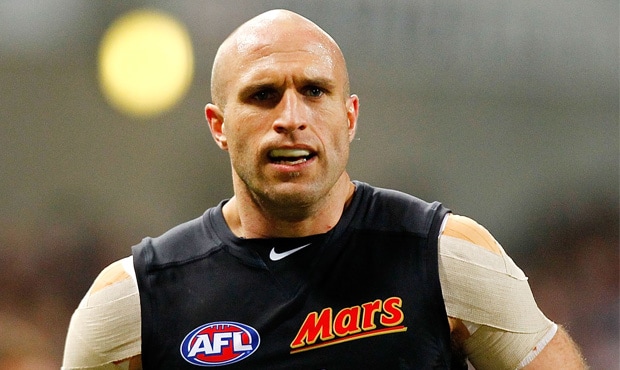Gold Coast wasn’t even a glint in Andrew Demetriou’s eye when Chris Judd famously pitched for Princes Park in late 2007.
Seven seasons on, and at the gloriously historic timeslot of 2.10pm Saturday, “The Juddman” braces for the opening bounce against the Suns at Etihad Stadium in what is a significant personal milestone, game No.134 for the Carlton Football Club.
In doing so, one of the true greats of 21st century League football draws level with his games tally with West Coast – and notwithstanding the obvious there’s little more he could have achieved at either.
This week, on the eve of game No.134 for Carlton, Judd took time out to reflect on the story so far, in this exclusive interview for carltonfc.com.au
Q: Chris, there’s a glorious synergy in your 134th game for Carlton this week, what with 134 games for West Coast?
A: Well, there you go. I wasn’t aware of it, I’ve only been told just now.
Q: What does it mean to you?
A: Not much! (laughs). I guess it’s a good amount of football for both clubs and it means a lot to have played so much for both, but beyond that . . .
Q: Has the last 134 gone faster than the first?
A: I think the second half of your career would be, not always, but usually, more challenging than your first because there’s so much improvement in your first half and then I guess it’s the opposite in your second half. In both instances I’ve loved my time here and my time at West Coast. But it’s not something I’ve paid too much attention to.
Chris Judd in action for the Eagles in 2002. (Photo: AFL Photos)
Q: What if you look at the 267 games in totality?
A: At times it seems that those games have come and gone like that (clicks fingers), but before I was playing AFL footy I was still at school and that seems like a hell of a long time ago. When you look back to what you were doing before League football that does seem like a lifetime ago.
Q: Do you feel blessed with the way your career has played itself out over these 13 seasons?
A: I feel so incredibly fortunate to have played for two great footy clubs – this one with all its football history and its people – so yeah, I’ve been very lucky with the career that I’ve had.
Q: Any regrets?
A: I’ve certainly made some mistakes, but I view life with its real world problems and its football problems, and regrets are to be confined to real world problems. So in that sense there’s nothing to regret in respect of my football career, but that’s not to say that I haven’t made mistakes.
Q: Clearly you have the capacity to compartmentalise your life with your football to keep it all in perspective.
A: Which is harder to do with the amount of media scrutiny there is. Given that players are coming into it at such a young age it’s really important they keep perspective, because it’s so easy to be lulled into the belief that footy is the centre of the universe . . .
Judd with his daughter Billie. (Photo: @becjudd)
Q: You would have noticed an increase in media exposure in your time.
A: Yeah, and even when I started I thought there was a lot of exposure. But it’s grown exponentially. When I started out I’m not sure there was Fox Footy (it may have been there in my first year) and there was “The Footy Show” on Channel Nine, But there was no “AFL 360”, no “Footy Classified” so the landscape’s completely changed. There have been plenty of benefits to the game because of that, but there have also been costs.
Q: Is “Fun” a word that can be found in the vernacular of a professional AFL footballer thesedays?
A: Not really. I think “fulfilment” is a more appropriate word. When you’re running out onto the field crashing into bodies and feeling like you’re going to throw up your guts because you’re running so much, you’re not saying “Wow, this is fun” like you are when you’re at a barbecue having a few beers. But certainly that feeling at the end of a game when you’ve had a good win and everyone’s played well, there’s a sense of fulfilment that you don’t get in the rest of your life. It’s that fulfilment you're chasing moreso than that fleeting notion of fun.
Q: Has your attitude to the game changed?
A: Having kids changed it a fair bit, simply because up until then nothing seemed as important as footy. Now the kids have dwarfed football’s importance in my life. That probably helped me with that perspective thing, in seeing footy for what it was, so that’s been the biggest change for me personally.
Q: Whatever happens from hereon in you will have played more games at Carlton than at West Coast. What does that mean?
A: I think it means that the longer you play the greater your appreciation of the game. When you become more and more aware of your own mortality in the game you’re forced to appreciate it more than you do when you’re younger and you have that feeling that this will go on forever.
Judd in action against the Dockers in Round 19. (Photo: AFL Photos)
Q: In this the penultimate season . . .
A: (interrupts) I don’t know . . . don’t know . . . we’ll just wait and see.
Q: Is the body holding up?
A: It’s pretty good, yeah . . .
Q: And do you see real hope in terms of where this team is heading?
A: Yes – and these are the sort of things you have to weigh up. The team is becoming more competitive across the whole group, and I think that desire to win is more evenly spread across the whole 22 players who enter the field each week – and that probably hasn’t been a real strong suit of this club in my time here.
Q: You’re talking about people in survival mode.
A: Yeah. When your club has had poor results for a long time players tend to focus more on surviving the experience rather than achieving anything. When I first got here seven years ago a large number of players were probably more focused on just getting a contract or, if they were good players on getting good contracts than they were focused on how we were going to achieve anything as a group because that’s just what happens in organisations that are underperforming – and that’s not unique to this club. That would happen across the board in companies across the world and poor performing sports clubs alike. But that has gradually changed in my time here which is much for the better, to the point that you’re really confident with all the 22 guys who take to the field that they really want to win for the club on the day. And that level of confidence is the highest it’s been in my time here, and that’s really encouraging and something worth thinking about.
Q: You’ve been a senior Carlton footballer for seven seasons now. What do you reckon you’ll be doing seven years from now?
A: I’d like to be running a small business. That’s the plan, although what that small business is I have no idea. That presents a whole series of challenges, which is exciting in itself.


